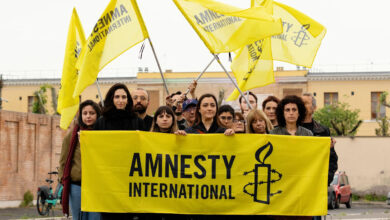Uniting a Continent: Celebrating the Historic Signing of the Treaties of Rome
On March 25, 1957, a significant event in the history of Europe and the world took place: the signing of the Treaties of Rome. This momentous occasion marked the birth of the European Economic Community (EEC) and the European Atomic Energy Community (Euratom), laying the groundwork for what would eventually become the European Union (EU), a unique economic and political union between 27 European countries.
The Treaties of Rome were signed by six founding countries: Belgium, France, Italy, Luxembourg, the Netherlands, and West Germany. These treaties aimed to foster economic cooperation between the member states, aiming to create a common market and a customs union. The EEC, in particular, focused on reducing trade barriers and establishing standard policies on a variety of economic matters, from agriculture to transport. On the other hand, Euratom was created to coordinate the member states’ research programs for the peaceful use of nuclear energy.
The signing of the Treaties of Rome represented a visionary step towards greater European integration, inspired by the desire for peace and stability in a continent ravaged by two world wars. The founders believed that closer economic ties would make war between Europe’s nations unthinkable and promote peace and prosperity. This vision was about economic benefits and forging a sense of European identity and solidarity among the member states.
The Treaties of Rome have had a profound and lasting impact on Europe and the world. Over the decades, what began as a six-nation economic community has grown into the European Union, with 27 member countries and a population of over 500 million. The EU has become a major global player, promoting democracy, human rights, and environmental stewardship both within its borders and internationally. It has created a single market where goods, services, people, and capital can move freely, and it has adopted a common currency, the euro, used by 19 of its member states.
The EU has faced challenges over the years, including economic disparities among its members, debates over sovereignty and national identity, and the recent departure of the United Kingdom in a process known as Brexit. Despite these challenges, the EU continues to strive towards deeper integration and cooperation among its member states, driven by the foundational principles laid out in the Treaties of Rome.
As we commemorate the anniversary of the Treaties of Rome, it’s essential to reflect on the visionary project that began on March 25, 1957. The EU stands as a testament to the possibility of cooperation and unity in diversity, offering lessons on peace and integration relevant to today’s increasingly interconnected world. The Treaties of Rome remind us of the enduring value of pursuing shared goals and the importance of working together to address humanity’s complex challenges.





